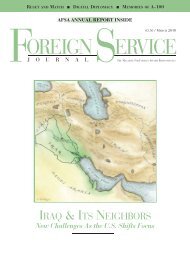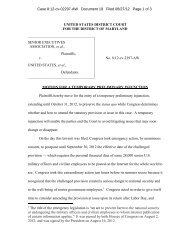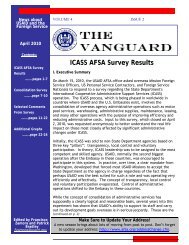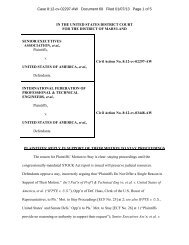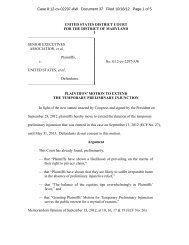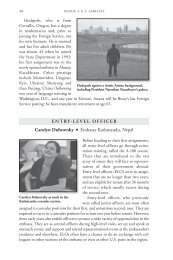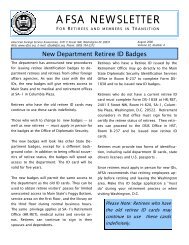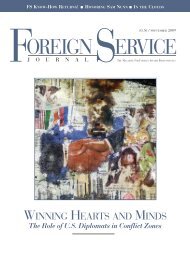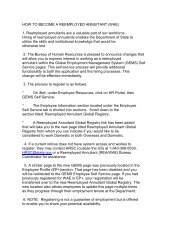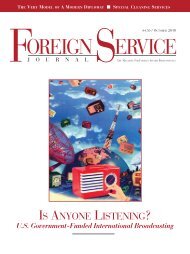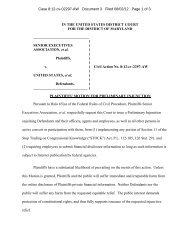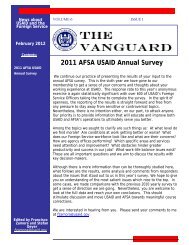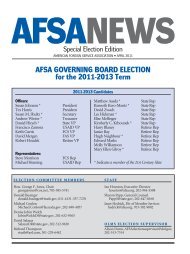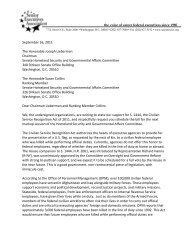F OCUS - American Foreign Service Association
F OCUS - American Foreign Service Association
F OCUS - American Foreign Service Association
You also want an ePaper? Increase the reach of your titles
YUMPU automatically turns print PDFs into web optimized ePapers that Google loves.
other half had children who were college<br />
age or beyond. After their return<br />
to the U.S. most spouses quickly became<br />
involved in their new lives, with<br />
two-thirds locating employment or volunteer<br />
work within the first six months.<br />
Findings:<br />
Expected and Unexpected<br />
The sample’s overall score on the<br />
Homecomer Culture Shock Scale was<br />
in the low to moderate range (36 on a<br />
scale from 20 to 100), showing that the<br />
level of re-entry adjustment problems<br />
for this group during their last experience<br />
was relatively low. Though I had<br />
not expected this score to be high, it<br />
was even lower than anticipated.<br />
For most spouses, re-entry did not<br />
appear difficult. However, for approximately<br />
20 percent of the sample, the<br />
process was more onerous, as shown<br />
by scores ranging from 50 to 96 on the<br />
HCSS. Statistical analysis was used to<br />
In an interesting and<br />
surprising finding,<br />
foreign-born spouses did<br />
not report significantly<br />
more re-entry difficulty<br />
than U.S.-born spouses.<br />
identify the characteristics of those<br />
who had more and those who had less<br />
difficulty, respectively.<br />
The statistical results showed that<br />
age, the number of years married to<br />
the FSO, and the number and ages of<br />
their children were strong factors in<br />
the spouses’ level of re-entry adjustment<br />
difficulty. Specifically, spouses<br />
who were younger (in their 20s to 40s)<br />
reported greater distress than those<br />
who were 50 years old or more. Similarly,<br />
spouses who had been married<br />
for shorter periods of time (under 10<br />
years) showed more re-entry culture<br />
shock than those who had been married<br />
longer.<br />
Spouses with young children reported<br />
more difficulties than those<br />
with older children. The number of<br />
children in the family was also associated<br />
with re-entry problems — those<br />
with fewer than three children had<br />
more distress than those with three or<br />
more children.<br />
These findings struck a personal<br />
chord, as they were similar to my own<br />
experience, but why should it be so?<br />
The answer may be that accompanying<br />
spouses are more often the family<br />
caretakers. And in this role spouses<br />
A P R I L 2 0 0 9 / F O R E I G N S E R V I C E J O U R N A L 35



